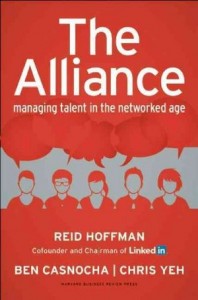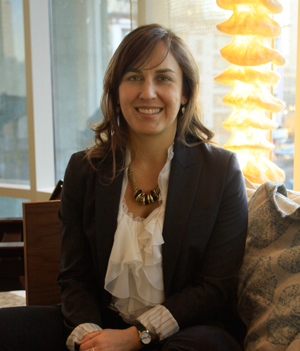Lisa Sugar is a pretty cool person. She has attended the Oscars, had a Hollywood-themed Bat Mitzvah, and her first concert was Michael Jackson.
She's also the founder of POPSUGAR, a global lifestyle media and tech company inspiring and engaging over 100 million readers. Since its beginnings in 2005, POPSUGAR has embraced a vision to "modernize the newsstand" and connect readers to all the latest trends in lifestyle and pop culture. It is now the #1 independent media company for women.
Of course, a successful business like POPSUGAR doesn't just appear. It takes a lot of hard work and passion, and Lisa Sugar's new book Power Your Happy details her steps to success in both life and career.
One of Sugar's overarching philosophies is to "work hard, play nice." She believes that you don't have to cheat or be cutthroat to get to the top—working hard and playing by the rules is rewarded just as well. Sugar notes:
For me, nice doesn't mean saccharine or relentlessly positive. It can mean being fiercely competitive (which I'll be the first to admit I am) as long as you play by the rules. Nor does nice mean being sickly sweet or timid (I also curse like a sailor). My brand of nice comes from a place of honesty, supporting others, and being empathetic. Nice is the simple lesson you learn in preschool: do unto others as you would have them do unto you.
3 Ways to Build a Business While Playing Nice
1. Make friends with your competition
It's easy to think of your competition as the enemy—a person or entity from which you want to distance yourself and keep secrets. But Sugar recognizes that a huge part of POPSUGAR's early success is due to the support of other writers and celebrity sites:
It felt as though these fellow bloggers were my coworkers. ... We gave one another advice—about coding, finding images, tools, and navigating legalities—and become friends in the process. We were fond of one another and knew how much hard work we all were putting into our sites. ... Rather than see one another as rivals, we figured out how to collaborate. As a result, all of us grew our sites' traffic much faster than we would have alone.
As you build your business and navigate your career, consider doing so with a mindset of collaboration and abundance. Going it alone and feeling as though you are in a stressful state of "survival of the fittest" is not healthy.
2. Stay true to your values
When it comes to building a business or career, know that you have a unique understanding of your industry—the good and the bad—and have an opportunity to consciously choose how you want to participate.
When Sugar started POPSUGAR, she knew she wanted to promote a positive voice that inspires women to build confidence, celebrate their diversity, and feel supported. While many other celebrity and media sites thrive on a negative voice, Sugar was sure to cultivate an online community where people were safe. For instance, a primary editorial guideline from the beginning was to never write anything about a person you would not say directly to their face. Comments and audience engagement are also well-monitored to encourage positive conversation and weed out the trolls. In the end, POPSUGAR's values-drive business practices were rewarded with a rapidly growing community.
3. Focus on team culture
The success of your business depends on many people, which is why it's so important to thoughtfully grow your team and team culture. Sugar notes that by focusing on building a work atmosphere that is happy and supportive, her employees are better able to do good work, suggest new ideas, and appropriately resolve conflict.
More specifically, Sugar encourages transparency and an all-hands-on-deck mentality in her team:
I want to create a safe, positive environment where I'd rather hear what the twenty-two-year-olds have to say than make them cower in fear. ... At POPSUGAR, we have the mentality that everyone should know how to do a little bit of everything. Sure, you need to start by learning the basics and train your way up to bigger tasks, but being at the top doesn't mean you are ever above doing a little dirty work. That's part of working hard and playing nice and being a team player.
Book Giveaway
We're excited to announce that one awesome Life After College reader will receive a copy of Lisa Sugar's Power Your Happy!
To enter to win, please answer the following question in the comments by Friday, March 10. We will pick a winner via random.org and let you know! Good luck!
Comment to Be Entered to Win:
What does "playing nice" in your business or career mean to you?
Marisol Dahl graduated Yale in 2015 as a Sociology and Education Studies major. She is currently a New York-based freelancer in communications and brand strategy, and loves exploring minimalist blogging and social media practices at her site Mindful & Minimal. She can be reached on Twitter at @marisoldahl.







 At first glance,
At first glance, 






